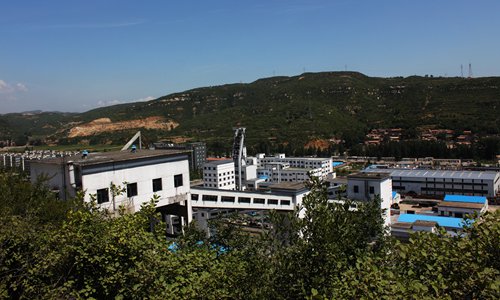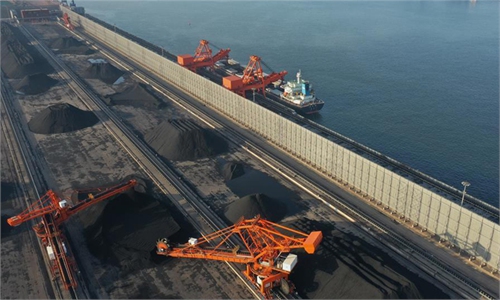SOURCE / INDUSTRIES
China’s coal imports remain weak, draining up from Australia in October

A section of the Shanxi Province-based Yangquan Coal Industry (Group) Co Ltd coal mine Photo: IC
China imported 13.73 million tons of coal in October, down 46.56 percent from a year ago and down 26.5 percent month-on-month, hitting the lowest level this year.
Meanwhile, the country's coal imports from Australia slumped 62 percent in October month-on-month, indicating a generally weaker coal market and unresolved frictions between China and Australia, experts say.
The drop in coal imports was related to environmental restrictions, using-up of import quotas and weak energy demand, which also pushed global coal producers including Australia to seek new buyers, a coal industry analyst said at the China Energy Week 2020, a conference held by the Oil Observer and Shanghai Petroleum and Natural Gas Exchange.
"As China released a three-year action plan on air pollution control, the regions with high demand for coal including the Beijing-Tianjin-Hebei region, the Yangtze River Delta and the Pearl River Delta cut coal imports to reduce air pollution, " Lun Jingtai, chief coal analyst with price information provider Argus, said.
The plan, released in 2018, required that, by 2020, emissions of sulfur dioxide and nitrogen oxide should drop by at least 15 percent from 2015 levels, and cities which failed to meet the requirement of PM2.5 particles density should cut their density of PM 2.5 by 18 percent from 2015 levels.
Lun noted many Chinese companies used up their import quotas due to increased coal imports in the first half of the year (174 million tons, up 12.7 percent year-on-year) and the global energy demand has weakened amid the COVID-19 pandemic.
In October coal imports from Australia plunged. China imported 2.25 million tons of coal from Australia, down 62 percent month-on-month, according to a report by Reuters.
At the beginning of October (China's National Day holiday), almost all power plants along the coast stopped buying Australian coal, said Lun, adding that the price per ton of Australian 5500kcal/kg coal is 270 yuan ($40.88) lower than China-produced similar coal in September.
Many stated-owned power plants have stopped buying Australian 5500kcal/kg coal since May, which somehow influenced Australian coal producers' production plans, Lun said.
"For example, Australian mining giant BHP had planned to produce 15 million to 17 million tons of coal (averaged 1.33 million tons per month) in New South Wales from July 2020 to June 2021, but the company produced just 3.62 million tons from July to September, " Lun said.
Although China's northeast region has seen an increasing coal demand with the start of the winter heating season, demand for Australian coal remains soft in the Chinese market, pushing Australian coal producers to search for new markets, said Lun.


